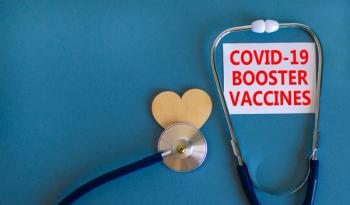
Preschoolers Infected With SARS-CoV-2 Are More Likely To Be Asymptomatic Than Other Age Groups: Johns Hopkins Researchers
Findings reported in JAMA Network Open today show more than one-third of infected preschoolers are asymptomatic. The results call into question COVID-19 prevention strategies based on screening young children for symptoms.
Findings reported in JAMA Network Open today show more than a one-third of infected preschoolers are asymptomatic. The results call into question COVID-19 prevention strategies based on screening young children for symptoms.
Preschool-aged children infected with the SARS-CoV-2 virus are frequently asymptomatic and their symptoms are not correlated with viral load, according to the results of a study published today in
An editorial accompanying the study says increasing the number of young children who are vaccinated against COVID-19 is likely the best strategy for reducing transmission in preschool children. In June, the FDA granted an emergency use authorization for the Pfizer and Moderna vaccines in preschool children and CDC’s Advisory Committee on Immunization Practices issued interim recommendation for their use in small children.
The study was conducted between Nov. 24, 2020, and Oct. 15, 2021. The omicron variants started circulating in the U.S. in November 2021, so after the eight-month study was completed.
One of the strengths of the study was that it was designed prospectively. The researchers enrolled 175 Maryland households. The households comprised 256 children, ages 0 to 4; 100 children, ages5 to 17, and 334 adults. The participating households filled out weekly questionnaires about possible COVID-19 symptoms and submitted nasal swabs for polymerase chain reaction (PCR) testing that is more reliable that the at-home rapid antigen tests. They also collected blood samples at the beginning, end and mid-way through the study.
Fifty-four (7.8%) of the 690 people in the study experienced SARS-CoV-2 infections.
One of the limitations of the study is that the numbers of infected participants was quite small, especially when they were broken down by age group. For example, the finding that infected young children are more commonly asymptomatic was based a comparison between seven of the 19 infected children in the 0-4 age group to the adult group of 21 infected individuals, three of whom were asymptomatic.
The study also suffered from lack of diversity: 87.4% of the study participants self-reported their race as White.
Newsletter
Get the latest industry news, event updates, and more from Managed healthcare Executive.























